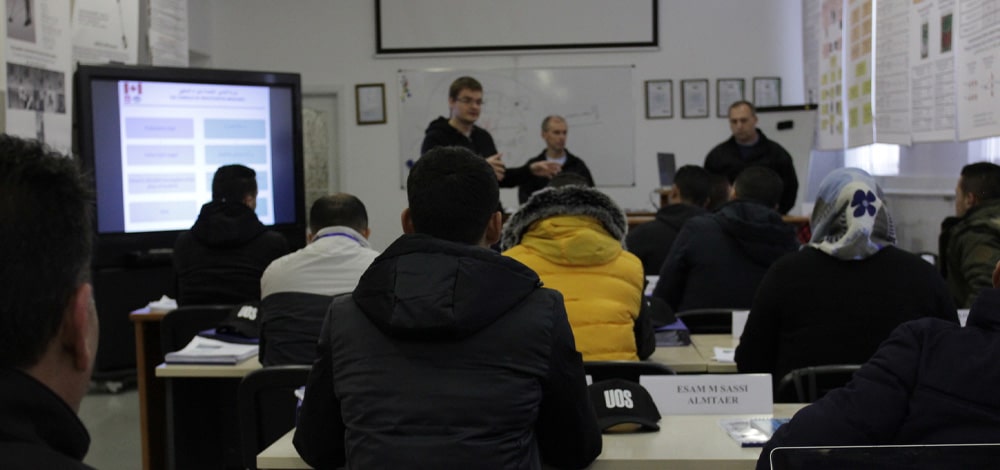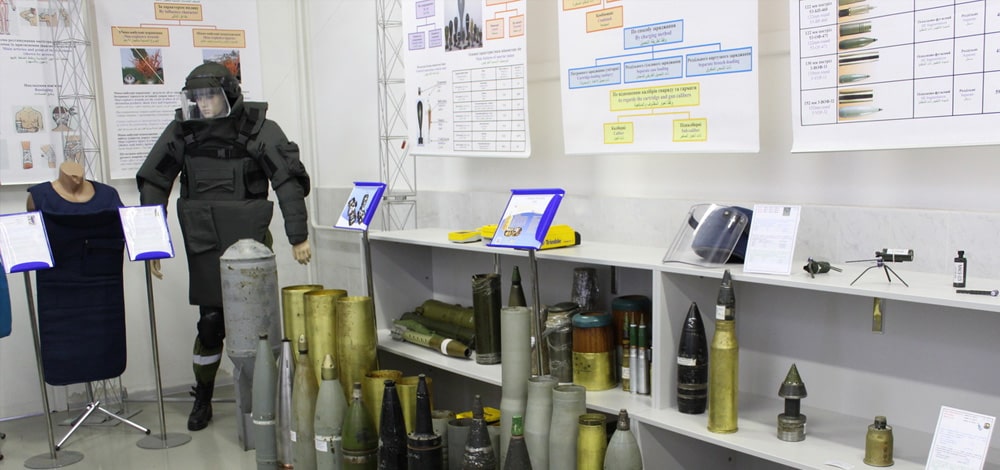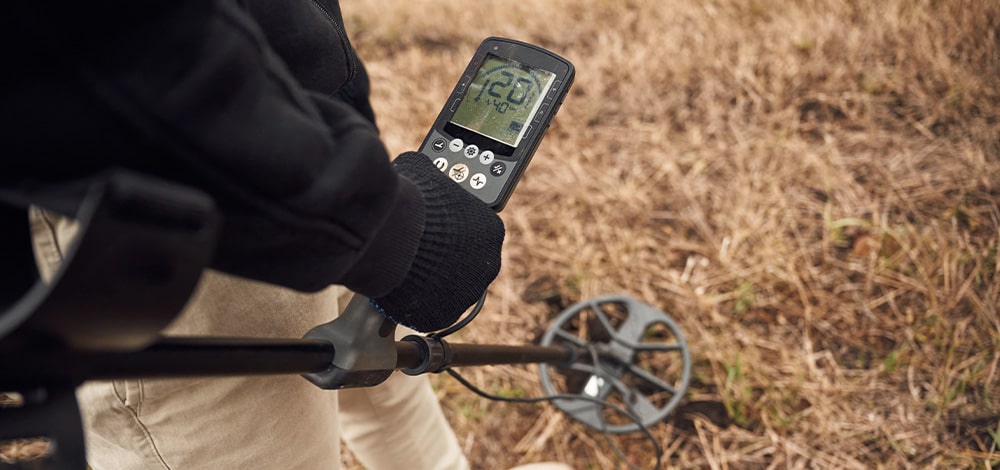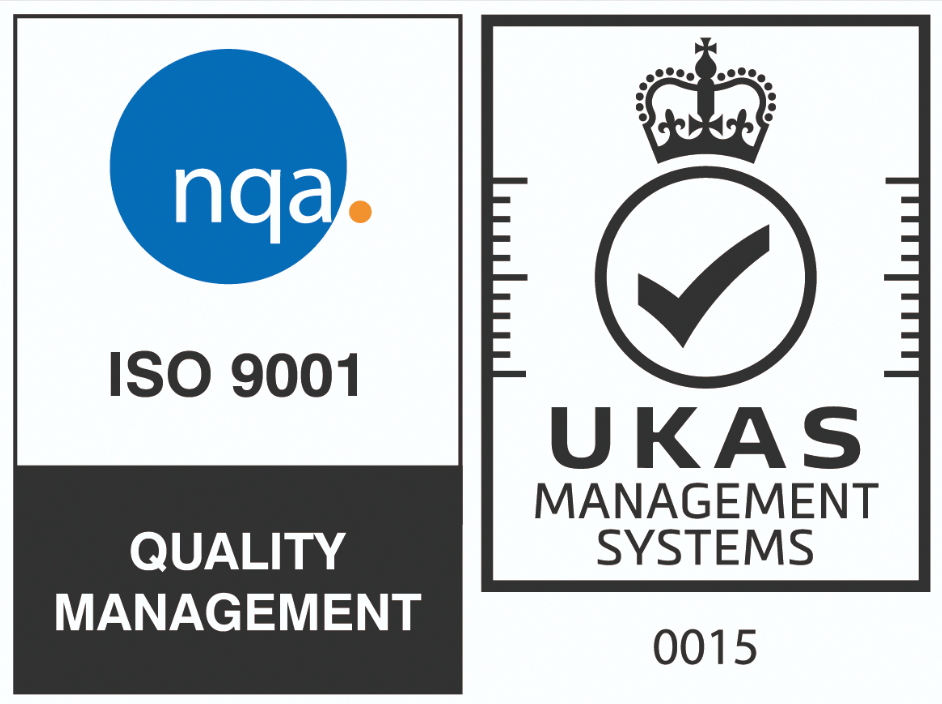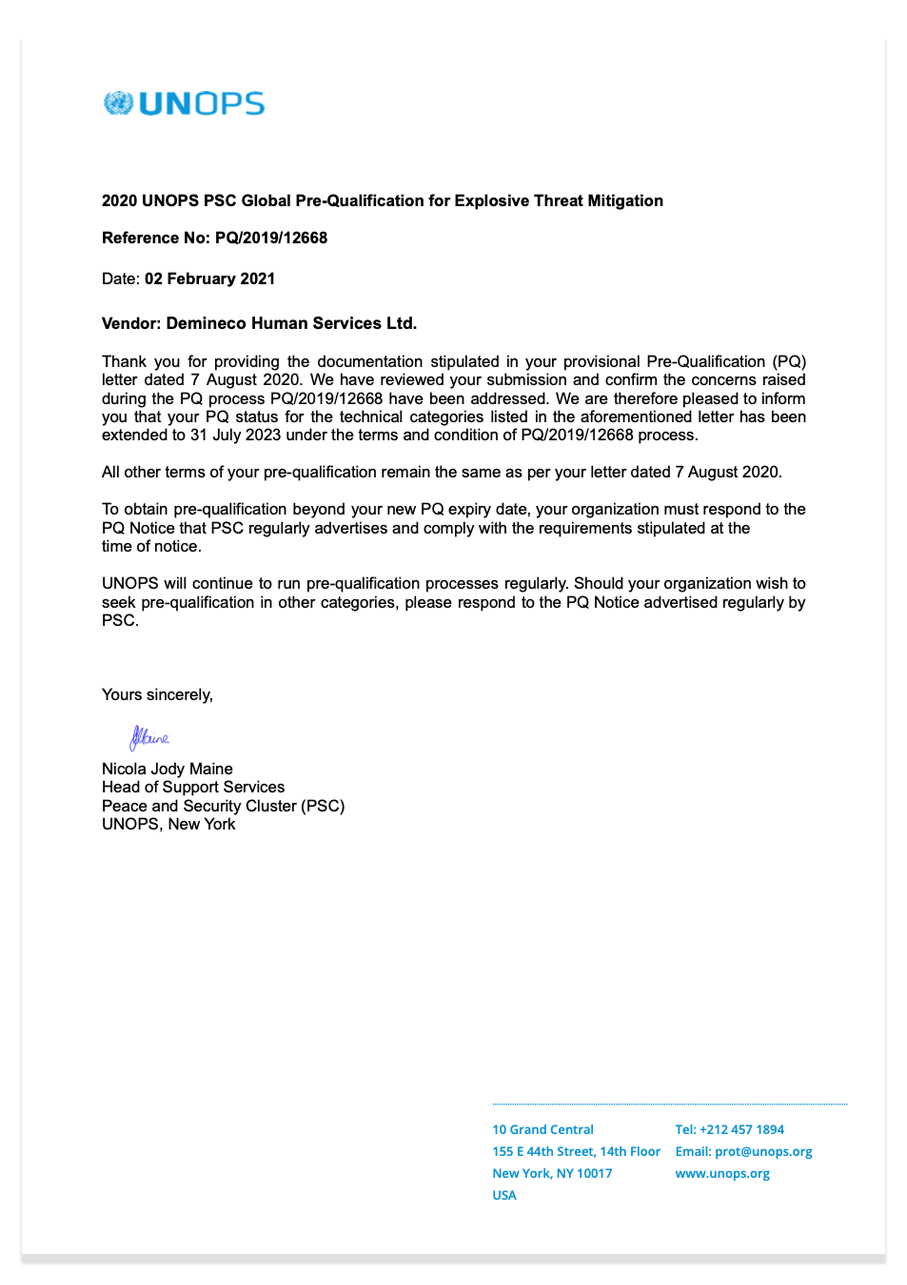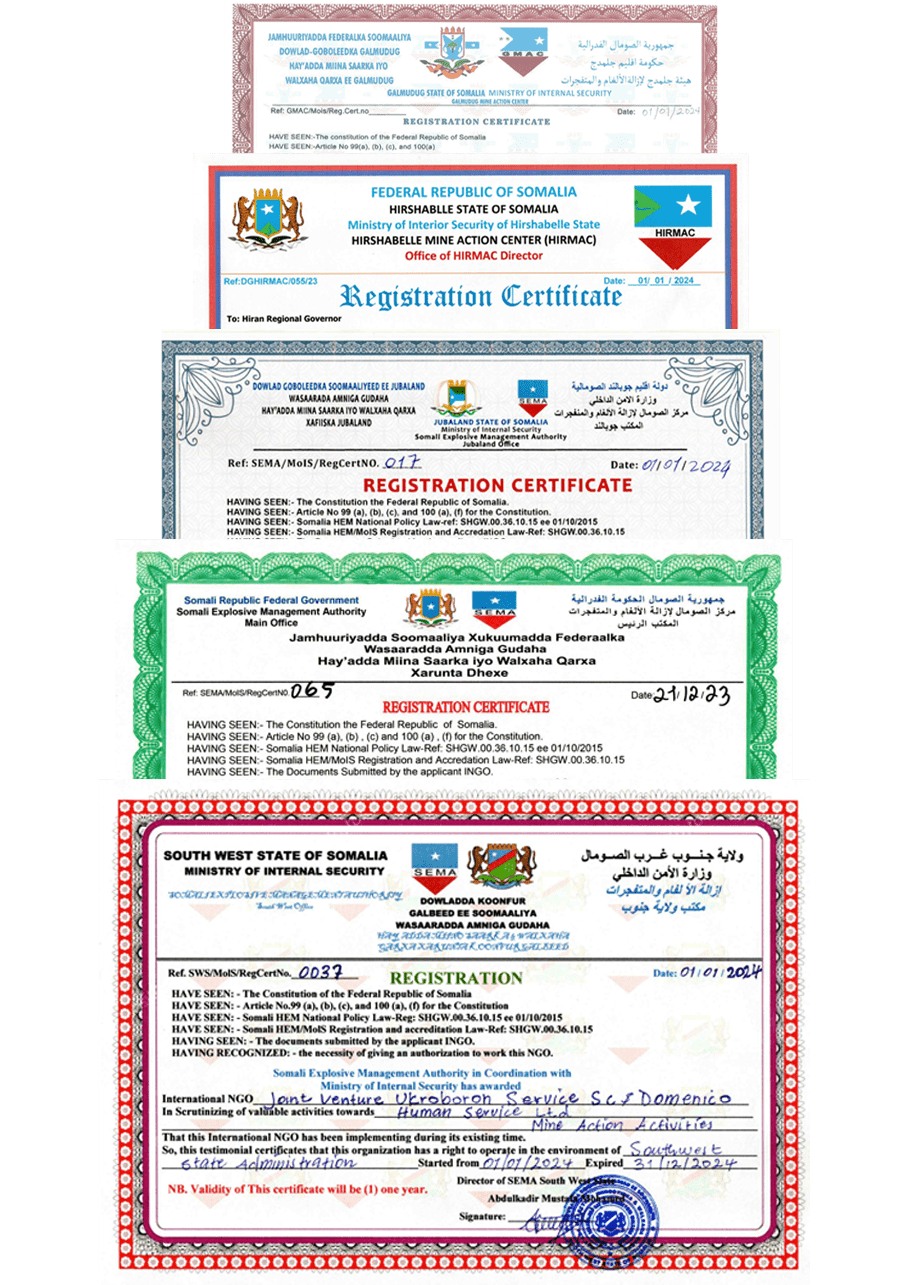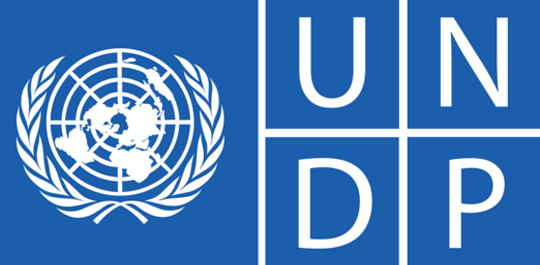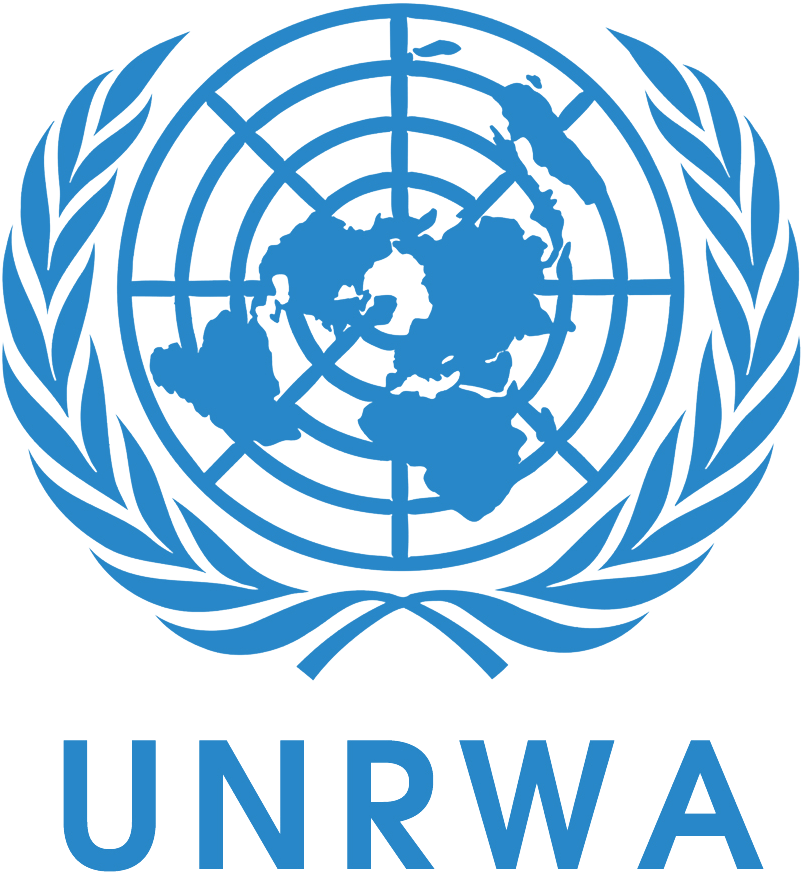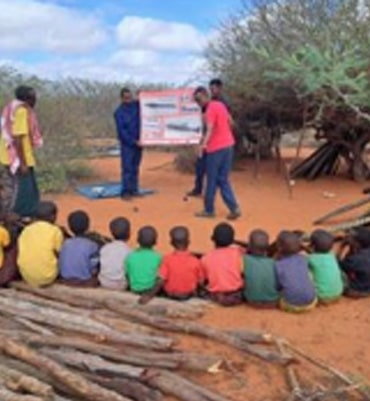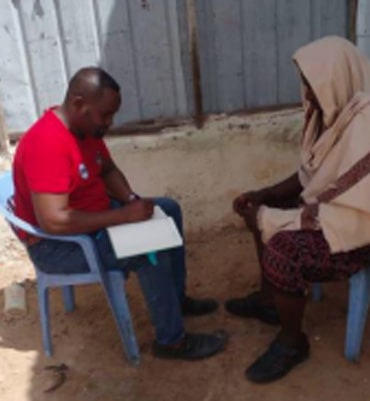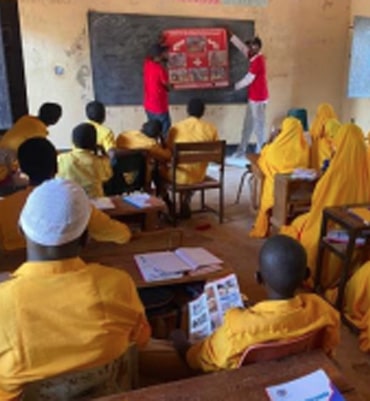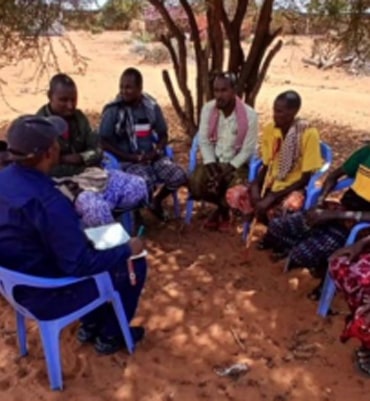To enhance the effectiveness and safety of demining and disposal operations, DHS also offers a comprehensive range of specialized equipment, including:
- Personal protective equipment (PPE) and demining suits
- Detection and clearance tools
- EOD and demolition kits
- Secure transport and storage systems for explosives
By integrating expert services with reliable, mission-ready equipment, DHS ensures that every operation is executed with precision, safety, and sustainable impact.
DHS is an independent consulting group with the in-house capacity to design, implement, and oversee objective, data-driven, and cost-effective solutions specifically tailored for the humanitarian demining sector. Our independence allows us to remain impartial and results-oriented, ensuring that every recommendation is guided by operational realities, international standards, and the best interests of affected communities.
We leverage a multidisciplinary approach—combining technical expertise, field experience, and strategic planning—to develop customized methodologies that reduce risk, optimize resources, and enhance overall mission effectiveness. Whether supporting donor-funded programs, government agencies, or non-governmental organizations, DHS delivers scalable and sustainable solutions that meet both humanitarian and operational goals.
Our work is fully compliant with the International Mine Action Standards (IMAS). These internationally recognized guidelines—developed under the auspices of the United Nations—provide a framework for safe, effective, and accountable mine action activities around the world.
At DHS, adherence to IMAS is not just a procedural requirement—it is a core principle embedded in every aspect of our operations. From planning and risk assessment to field implementation, quality assurance, and post-clearance reporting, we ensure that all activities are conducted in strict alignment with IMAS protocols.
This commitment guarantees:
- Operational safety for both personnel and affected communities
- Technical integrity in land release, clearance, and EOD activities
- Transparency and accountability for donors, partners, and stakeholders
- Environmental responsibility and ethical conduct
- Consistency with global best practices and UN-endorsed methodologies
By following IMAS, DHS not only meets the highest international standards but also reinforces trust, professionalism, and long-term impact in every mission we undertake.
At DHS, we offer a comprehensive suite of services in the fields of humanitarian demining, explosive ordnance disposal (EOD), demilitarisation, weapons destruction, and explosives and ammunition management (EAM). Our integrated approach ensures that every aspect of explosive hazard mitigation is covered—from initial threat assessment to final clearance and disposal.
Our capabilities include:
- Humanitarian Demining: Survey, detection, clearance, and land release operations, conducted in line with International Mine Action Standards (IMAS) to restore safe access to contaminated areas.
- Explosive Ordnance Disposal (EOD): Identification, rendering safe, and disposal of unexploded ordnance (UXO) and other hazardous devices, tailored to both humanitarian and post-conflict settings.
- Demilitarisation & Weapons Destruction: Secure dismantling and destruction of small arms, light weapons, and surplus ammunition—supporting disarmament, demobilisation, and reintegration (DDR) processes.
- Explosives and Ammunition Management (EAM): Safe storage, inventory control, risk assessment, and lifecycle management of conventional munitions, in alignment with international safety guidelines and best practices.
Provision of Experts, Equipment, and Training
We support our clients with a complete operational framework, including:
- Deployment of qualified specialists, including EOD technicians, demining teams, logistics experts, and risk education advisors.
- Supply of certified equipment tailored to mission requirements—ranging from personal protective gear and detection devices to destruction and transport systems.
- Customized training programs for local and international personnel, covering technical operations, safety protocols, quality assurance, and capacity building.
By combining field-tested experience with scalable support services, DHS enables governments, NGOs, and international agencies to carry out complex explosive hazard operations safely, efficiently, and sustainably.
DHS undertakes Independent Quality Management (QM) reviews of third-party demilitarisation solutions and operations, providing clients with unbiased, expert evaluations that ensure their specific requirements, safety standards, and operational objectives are fully met.
Our Quality Management services are designed to:
- Verify compliance with international standards, including the International Ammunition Technical Guidelines (IATG), IMAS, and client-specific protocols
- Assess technical processes, equipment usage, and personnel competency involved in the demilitarisation and disposal of weapons and ammunition
- Identify risks, gaps, or inefficiencies in third-party operations that may compromise safety, accountability, or cost-effectiveness
- Provide actionable recommendations for improvement, helping stakeholders achieve full transparency, regulatory alignment, and optimal results
As an independent and experienced consultant, DHS brings objectivity, discretion, and technical depth to every review, ensuring that your investment in third-party services delivers the intended outcomes—safely, securely, and to the highest professional standard.
At DHS, we employ proven management and coordination techniques specifically tailored to ensure the successful execution of each project—on time, within budget, and in full compliance with applicable international and national frameworks.
Our approach is guided by:
- Strategic Planning and Goal Alignment: We begin every project with a clear understanding of the client’s objectives, operational context, and regulatory environment. This ensures that all activities—from planning to execution—are purpose-driven and outcome-oriented.
- Integrated Project Management Methodologies: DHS applies internationally recognized project management practices, including risk management, stakeholder engagement, milestone tracking, and continuous performance monitoring.
- Regulatory and Standards Compliance: All our operations strictly adhere to relevant international standards such as the International Mine Action Standards (IMAS) and the International Ammunition Technical Guidelines (IATG), as well as host nation legislation and national protocols. We maintain full awareness of evolving regulations to ensure up-to-date compliance in every operational environment.
- Efficient Resource Coordination: We coordinate multidisciplinary teams, logistical assets, and technical resources with precision—maximizing efficiency while minimizing disruptions or delays.
- Transparent Communication and Reporting: Regular progress updates, compliance documentation, and quality assurance reports are integral to our process, fostering transparency and trust with all stakeholders.
Through this structured and adaptive management approach, DHS consistently delivers safe, accountable, and mission-driven solutions, even in the most complex or sensitive operational settings.
At DHS, we consider training to be an essential pillar of successful operations, particularly in high-risk fields such as humanitarian demining and explosive ordnance disposal (EOD). We firmly believe that the effectiveness, safety, and sustainability of any mission depend on the skill, knowledge, and preparedness of the personnel involved.
Training for Excellence, Safety, and Sustainability
Our training programs are designed to develop and maintain the highest levels of competence in:
- Project management and supervision
- Field-level demining and EOD operations
- Operational planning and risk mitigation
- Safety protocols and emergency response
- Quality assurance and control procedures
By providing structured, scenario-based, and standards-compliant training, DHS ensures that staff—whether international experts or local partners—are fully capable of executing their roles with confidence and precision.
Internationally Recognized Standards
All DHS training is aligned with International Mine Action Standards (IMAS), International Ammunition Technical Guidelines (IATG), and relevant national regulations. We deliver both initial certification and continuing education to promote a culture of professionalism, accountability, and continuous improvement.
Customized & Context-Specific Delivery
Whether training field operatives, supervisory personnel, or national authorities, DHS develops context-specific training modules that reflect local challenges, available resources, and mission-specific objectives. Training can be delivered:
- On-site in operational environments
- At centralized training centers
- Through mobile units or blended digital learning formats
By investing in human capital, DHS helps ensure that explosive hazard reduction efforts are not only effective—but sustainable long after our work is complete.
DHS actively assists in the development of national and organizational strategies in the fields of humanitarian demining, explosive ordnance disposal (EOD), and ammunition safety management. Our strategic support is designed to help governments, NGOs, international organizations, and other stakeholders shape effective, sustainable, and well-coordinated responses to explosive threats.
Strategic Planning and Policy Development
We work closely with clients and national authorities to:
- Design evidence-based strategies that align with international standards (such as IMAS and IATG) and national priorities
- Develop action plans, operational frameworks, and risk reduction pathways for mine action, EOD, and demilitarisation programs
- Support policy formation, regulatory development, and institutional capacity building
- Integrate humanitarian, developmental, and security perspectives for comprehensive, long-term impact
Our approach combines technical expertise, contextual understanding, and forward-looking analysis to ensure that every strategy is practical, achievable, and resilient.
Facilitating Dialogue and Information Sharing
At DHS, we also place a strong emphasis on promoting collaboration and the exchange of information among all stakeholders involved in mine action and post-conflict recovery.
We:
- Encourage inter-agency coordination to eliminate duplication and streamline resources
- Facilitate workshops, stakeholder meetings, and technical roundtables to foster dialogue and knowledge-sharing
- Promote transparency and data-driven decision-making by helping stakeholders adopt effective reporting, mapping, and information management systems (such as IMSMA)
- Build trust across sectors, supporting civil-military cooperation, humanitarian coordination, and community engagement
By supporting both strategic development and collaborative frameworks, DHS helps ensure that demining and EOD efforts are not only operationally sound—but also deeply embedded in broader national and international peacebuilding and development goals.
Information Management for Smarter, Safer Operations
The DHS Information Management System (IMS) is a core component of our operational framework, purpose-built to enhance the effectiveness, efficiency, and accountability of all demining, EOD, and explosive hazard management activities.
Our IMS is designed to support real-time data collection, analysis, and reporting, enabling field teams, managers, and decision-makers to work with clarity, precision, and agility.
Key Features & Capabilities:
- Operational Planning & Tasking: Streamlines the assignment and monitoring of clearance tasks, team movements, and logistical support to maximize field productivity.
- Hazard Mapping & Risk Analysis: Integrates GIS-based tools to map contaminated areas, analyze threat levels, and prioritize interventions based on risk and impact.
- Progress Tracking & Performance Metrics: Monitors daily outputs, quality assurance results, and mission milestones to ensure full transparency and continuous improvement.
- Incident Reporting & Safety Monitoring: Allows for immediate reporting and response to field incidents, near misses, or equipment malfunctions—supporting a culture of safety and accountability.
- Customizable Dashboards & Reports: Offers stakeholders access to tailored reports and real-time dashboards to support evidence-based decision-making and donor reporting.
Integration & Compatibility
The DHS IMS is designed to be compatible with industry-standard systems such as IMSMA (Information Management System for Mine Action) and is adaptable to client-specific platforms or reporting formats. It can be deployed in offline or low-connectivity environments, ensuring uninterrupted performance even in remote or high-risk regions.






